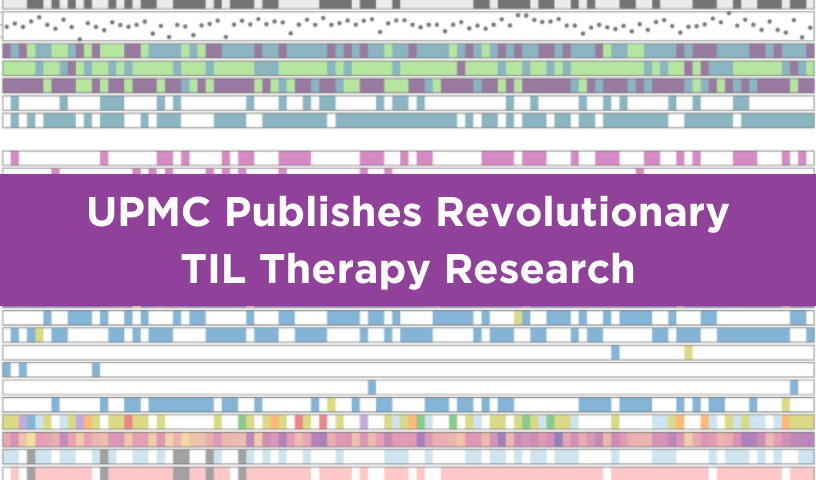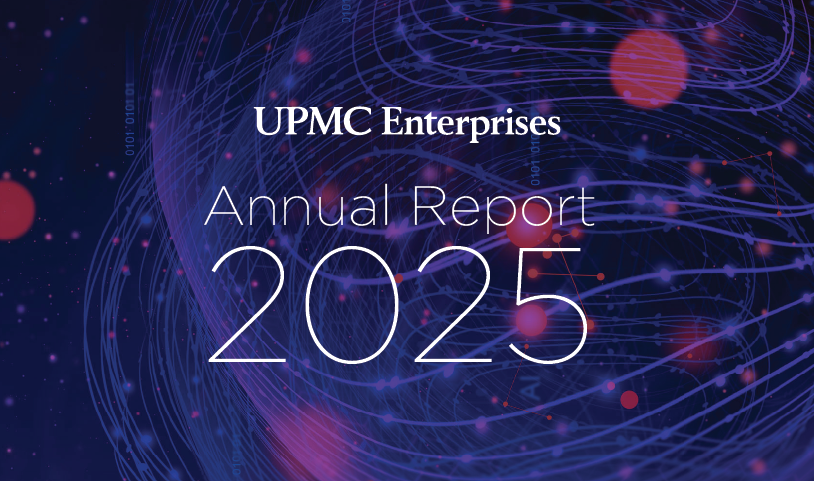
Cancer research has long been a journey of discovery and innovation, and at UPMC Enterprises, we’re proud to be at the forefront of this exploration.
Understanding Metastatic Uveal Melanoma
Metastatic uveal melanoma is a rare and aggressive cancer that has historically been resistant to conventional immunotherapies. This resistance has puzzled researchers and clinicians alike, but new research from the University of Pittsburgh is shedding light on this enigma and pointing to potential therapeutic solutions.
Adoptive Therapy: A Ray of Hope
The study, published in Nature Communications, reveals how adoptive therapy—specifically the transfer of a defined population of tumor-infiltrating-lymphocytes (TIL) from the patient’s own tumor—could be a game-changer in treating this formidable disease. This cutting-edge approach involves extracting and expanding the most reactive T cells from a patient’s own tumor outside the body and then reintroducing them. This personalized treatment harnesses the power of the patient’s immune system to target and combat cancer cells more effectively.
“The dogma was that uveal melanoma is a ‘cold’ cancer, meaning that T cells can’t get into these tumors,” said senior author Udai Kammula, MD, associate professor of surgery at Pitt and director of the Solid Tumor Cell Therapy Program at UPMC Hillman Cancer Center. “We show that T cells are in fact infiltrating metastases and they’re getting activated, but they’re just sitting there in a dormant state because something in the tumor is suppressing them. Adoptive therapy allows us to rescue these cells from the suppressive tumor microenvironment and successfully treat some patients.”
Innovative Clinical Tools for Predicting Treatment Response
Perhaps one of the most significant advancements from this research is the development of a new clinical tool that predicts patient response to adoptive therapy. This tool, Uveal Melanoma Immunogenic Score (UMIS), is a product of meticulous research by Dr. Kammula, lead author Shravan Leonard-Murali, MD, and support from the UPMC Genome Center.
UMIS provides a holistic measure of the tumor’s genetic activity, encompassing more than 2,000 genes from various cellular components of the tumor microenvironment. Clinicians can now predict which patients will benefit from adoptive therapy, marking a monumental step towards personalized medicine. This predictive capability enhances treatment efficacy and minimizes the chances of ineffective therapies, ensuring that each patient receives a tailored approach to combat metastatic uveal melanoma.
UPMC Enterprises: Investing in Personalized Therapies
At UPMC Enterprises, our dedication to combating cancer goes beyond mere words; it is demonstrated through substantial financial commitments, including funding for the adoptive therapy research led by Dr. Kammula and Dr. Leonard-Murali.
“We are thrilled to see the hard work and dedication of Dr. Kammula and his team bearing fruit and offering new hope for patients with advanced solid tumors, including uveal melanoma,” said Matthias Kleinz, DVM., PhD, Executive Vice President at UPMC Enterprises supporting transformational technology investments in the Life Sciences.
“We have been believers in this approach since Dr. Kammula brought his ideas to UPMC and are excited to provide continued support to his program to further enhance the therapeutic potential for TIL,” Kleinz continued. “Our hope is that one day soon our support will make this exciting new therapy available to all patients at UPMC and beyond.”
This funding is not an isolated gesture, but rather, a part of a consistent strategy to invest in innovative initiatives that have the potential to revolutionize cancer care. By channeling resources into such critical research, UPMC Enterprises is supporting science and actively driving the development of new, personalized treatment modalities that promise better patient outcomes worldwide.
As we continue to support innovative research and development, we remain dedicated to the vision of a future where cancer treatment is not just a one-size-fits-all approach, but a tailored, patient-centric journey. With our continued investment in research and development, we are not just envisioning a brighter future; we are actively building it.
Next Steps
- Read the full study published in Nature Communications.
- Visit our Translational Sciences webpage to see how UPMC Enterprises is supporting the scientific breakthroughs of tomorrow.
- Explore all the latest announcements and milestones from UPMC Enterprises and our portfolio companies here.


